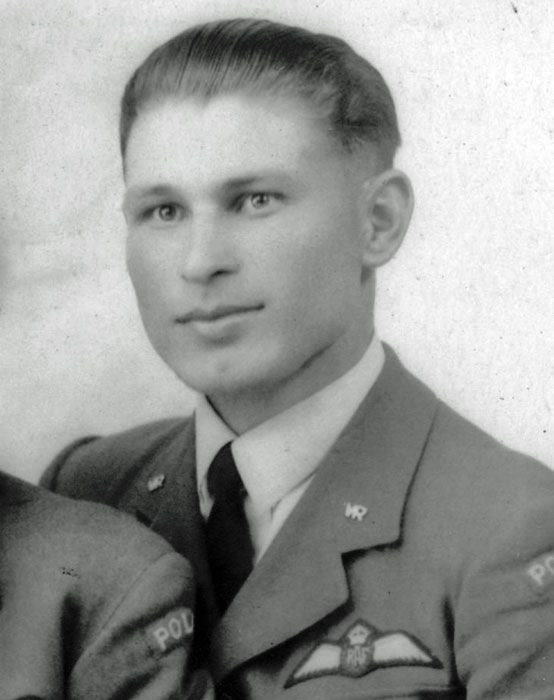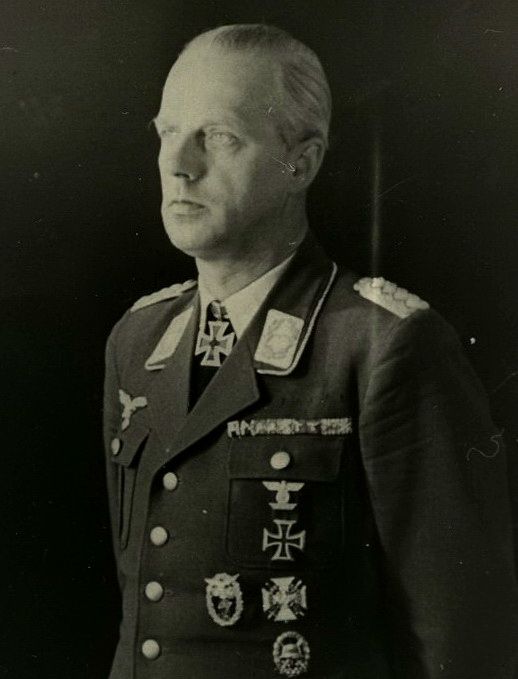Friday 6 December 1940
 |
| Bomb damage in Southampton, 6 December 1940. Firemen still are fighting the fires caused by incendiary bombs during a massive two-day Luftwaffe attack a week earlier. |
European Air Operations: The weather restricts flying operations. The Luftwaffe bombs Bristol, which is its latest target for successive raids, and London. The RAF bombs various airfields and ports in northwest Europe.
Battle of the Atlantic: The weather remains rough in the North Atlantic and the English Channel. This mangles convoy schedules and damages/sinks numerous smaller ships.
British 347-ton freighter Accomac has its boiler explode - perhaps due to stress fighting the weather - and drifts ashore at Pickie, Bangor, Northern Ireland. The ship is a total loss, but apparently, everybody survives.
Free French 2147-ton collier Mousse le Moyec runs aground and is wrecked at Harland Point, Devon.
Norwegian 1374-ton freighter Nyland is sailing with Convoy EN 35 off Iona, the Inner Hebrides when it runs aground at West Rock and is wrecked. All 20 onboard (including three Canadians) perish. The Nyland was en route to join Convoy OB 255 out of Liverpool. The ship simply disappears - a tug sent to tow it off the shore found nothing. Two weeks later, some wreckage bearing her name is found at Torran Rocks.
British coaster South Coaster encounters severe weather in Bristol Channel and is abandoned by its crew. The ten men are picked up by the Royal National Lifeboat Institute and the ship sinks. A ship with the same name sinks on 13 December 1943 at Pole Sands, but that is a different wreck.
Submarine HMS Unbeaten bangs up against depot ship HMS Titania in the Clyde due to the rough weather and takes damage. It proceeds to Barrow for repair.
Minesweeper HMS Salamander suffers serious damage in the rough seas and proceeds to Grimsby for repairs.
U-43 (Kptlt. Wolfgang Lüth), on its sixth patrol out of Lorient under its new captain, torpedoes and sinks 1902 ton Norwegian 1902-ton freighter Skrim west of Ireland. The U-boat has to pursue the freighter for almost four hours and then misses with its first torpedo. A second shot 20 minutes later, however, sends the freighter to the bottom in barely a minute. This sinking is partly attributable to the rough weather as well since the Skrim had lost contact with Convoy OB 252 two days before. Due to the conditions and loss of all crew, it is a historical assumption that this victim is the Skrim. All 34 onboard perish.
British 554-ton freighter Supremity hits a mine and sinks in the Thames Estuary. There is one death.
German 218-ton trawler Jupiter runs aground near Lodsbjerg, Jutland, likely due in part to the weather. It later is salvaged, repaired and returned to service after the war. The Jupiter had been requisitioned for Operation Sealion, but those ships had been dispersed and returned to normal duties pursuant to Hitler's orders.
Convoy FN 352 departs from Southend, Convoys FS 354 and FS 355 depart from Methil (some convoys have been delayed due to the weather), and Convoy HX 94 departs from Halifax.
Royal Navy minesweeper HMAS Bathurst (Lieut-Commander A. V. Bunyan, DSC, RD; RANR(S)) is commissioned.
Corvette HMCS Spikenard (K 198) is commissioned.
US submarine Flying Fish is laid down at Portsmouth Naval Shipyard, Kittery, Maine.
U-166 is laid down in Bremen.
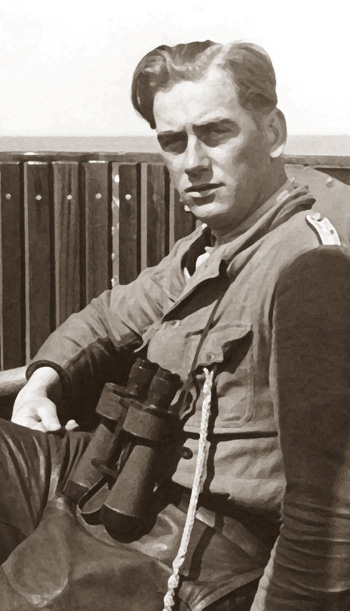 |
| U-166 will be commanded by Oberleutnant Hans-Günther Kuhlmann. |
The British Tommies are not told that they are on the verge of an offensive; this is "Training Exercise No. 2." The units are British 7th Armoured Division, British 16th Infantry Brigade, and Indian 4th Infantry Division. Together, they comprise the Western Desert Force under the command of General Richard O'Connor).
Royal Navy submarine HMS Regulus hits a mine and sinks off Taranto, Italy sometime around this date. All 55 onboard perish.
Royal Navy submarine HMS Triton torpedoes and damages 6040-ton Italian freighter Olimpia. The Olimpia is escorted by two Italian torpedo boats, the Altair and the Andromeda, but they fail to locate the Triton.
Battle of the Pacific: German raiders Komet and Orion, operating in tandem, come upon 4413 ton British/Australian phosphate freighter Triona northeast of the Solomon Islands near the island of Nauru (west of the Gilberts group). The Germans are very interested in Nauru due to its phosphate production and are planning to attack it, and coming across the Triona is purely coincidental to that objective. Accounts vary about what happened next: either the freighter is sunk after a long chase, killing three or four (native) crewmen with gunfire, or the ship is captured and then sunk. It is possible that the ship is captured after a chase and either quickly scuttled or sinks from its battle damaged. In any event, the Triona does not last very long. There are 68 survivors, including 6 female passengers and a child.
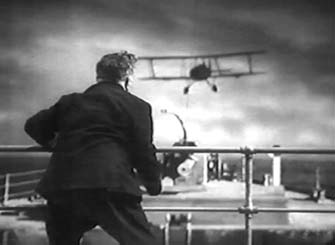 |
| A scene from "Neutral Port," starring Will Fyffe and Leslie Banks, released on 6 December 1940. Its story follows a sea captain who loses his ship to a U-boat but then steals another enemy ship. |
German/Italian Relations: Italian Foreign Minister Dino Alfieri complies with Mussolini's order and meets with German Foreign Minister Ribbentrop. Alfieri requests German intercession in the Greek campaign. Ribbentrop submits Alfieri to one of his standard lectures and then schedules a meeting between Alfieri and Hitler on the 7th.
German Military: Subsequent to the big conference held with Hitler regarding Operation Barbarossa, OKW operations chief Lt.Gen. Alfred Jodl has Major General Walther Warlimont begin detailed planning.
Italian Military: Pursuant to his recent discussion with Mussolini, Marshal Badoglio "resigns" his position as Chief of Staff. He is succeeded by General Count Cavallero.
Vichy French Government: The government indicts former government leaders Blum, Daladier, La Chambre, and Gamelin.
 |
| "V" Field in Pensacola, Florida. It was used for pre-war Naval aviation training and as an emergency field. It was just a sod field with the three runways shown and was abandoned sometime during the war and since it has become a subdivision. The photo was taken by the USDA on 6 December 1940 (George A. Smathers Libraries, University of Florida). |
Heavy cruiser USS Louisville returns to Rio de Janeiro on its "Show the Flag" mission.
Holocaust: In one of the ironies of history, Adolf Hitler's cousin Aloisia Veit is gassed (carbon monoxide) to death on or about this date in Austria. This is pursuant to the euthanasia program that Adolf Hitler himself had authorized in late 1939. Aloisia was diagnosed with "schizophrenic mental instability, helplessness, depression, distraction, hallucinations, and delusions." Assuming that the doctors' notes can be believed, the woman actually was mentally ill, and she spent much of her time chained to her bed. She is related to Hitler via his father's Schicklgruber family - that branch of the family apparently had a deep history of mental illness. This information was uncovered by David Irving ("Hitler's War"), American historian Timothy Ryback in the period 1990-2005, and using papers recovered after the war by a US Army private, Eric Hamm. It is unknown what, if anything, Hitler knows about this, but all German media is forbidden to mention the word "Schicklgruber" - though that is a favorite word in the Allied press.
Indochina: The Japanese step in and attempt to resolve the simmering Thai/Vichy French border war. They sign a "non-aggression pact" with the Thais (supposedly at the Thai government's request) and basically impose a settlement. The Thais get several disputed territories, including Lao Sayaboury, the Cambodian provinces of Battambang and Siem Riep (Phibunsongkhram province), and the part of Champassak on the west bank. The US, meanwhile, looks askance at the Thai invasion and halts exports of 16 aircraft to Thailand, re-routing them to their own forces in the Philippines. The US also considers further sanctions based in part on the growing perception that Thailand and Japan basically are now de facto allies, which is not the case.
American Homefront: MGM's "Go West," starring the Marx Brothers, premieres. It features "The Woodpecker Song" by Harold Adamson and Eldo di Lazzaro.
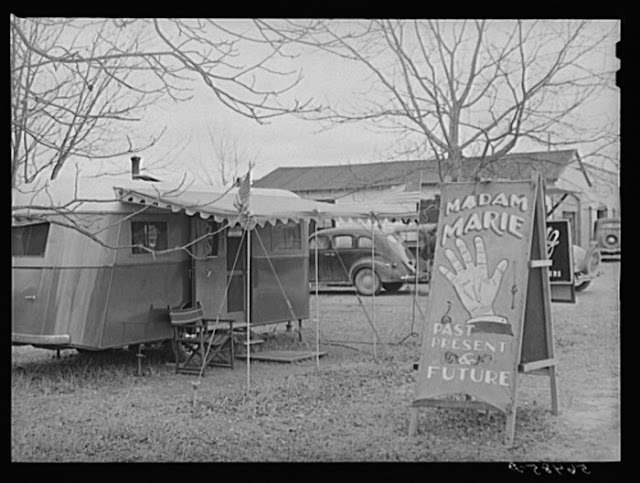 |
| Madam Marie will tell your fortune near where soldiers live outside Fort Benning, Georgia. December 1940. Marion Post Wolcott/LC-USF34-056485 via Library of Congress. |
December 1940
December 1, 1940: Wiking Division Forms
December 2, 1940: Convoy HX 90 Destruction
December 3, 1940: Greeks Advancing
December 4, 1940: Italian Command Shakeup
December 5, 1940: Thor Strikes Hard
December 6, 1940: Hitler's Cousin Gassed
December 7, 1940: Storms At Sea
December 8, 1940: Freighter Idarwald Seized
December 9, 1940: Operation Compass Begins
December 10, 1940: Operation Attila Planned
December 11, 1940: Rhein Wrecked
December 12, 1940: Operation Fritz
December 13, 1940: Operation Marita Planned
December 14, 1940: Plutonium Discovered
December 15, 1940: Napoleon II Returns
December 16, 1940: Operation Abigail Rachel
December 17, 1940: Garden Hoses and War
December 18, 1940: Barbarossa Directive
December 19, 1940: Risto Ryti Takes Over
December 20, 1940: Liverpool Blitz, Captain America
December 21, 1940: Moral Aggression
December 22, 1940: Manchester Blitz
December 23, 1940: Hitler at Cap Gris Nez
December 24, 1940: Hitler at Abbeville
December 25, 1940: Hipper's Great Escape
December 26, 1940: Scheer's Happy Rendezvous
December 27, 1940: Komet Shells Nauru
December 28, 1940: Sorge Spills
December 29, 1940: Arsenal of Democracy
December 30, 1940: London Devastated
December 31 1940: Roosevelt's Decent Proposal
2020

